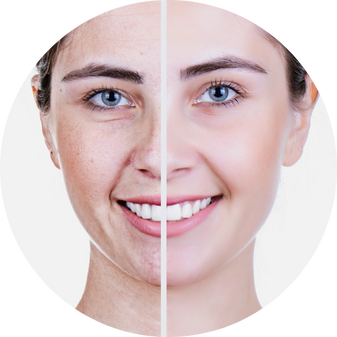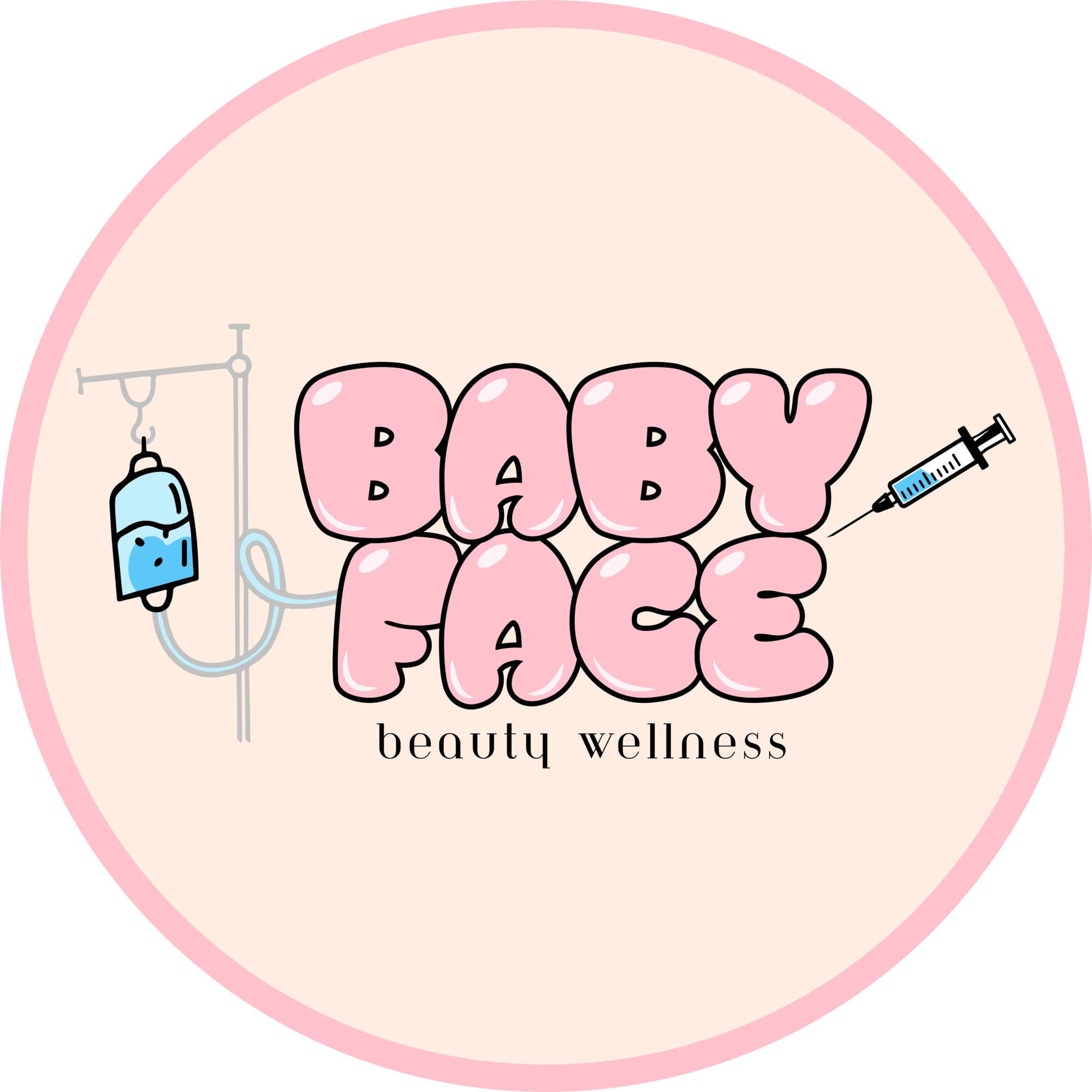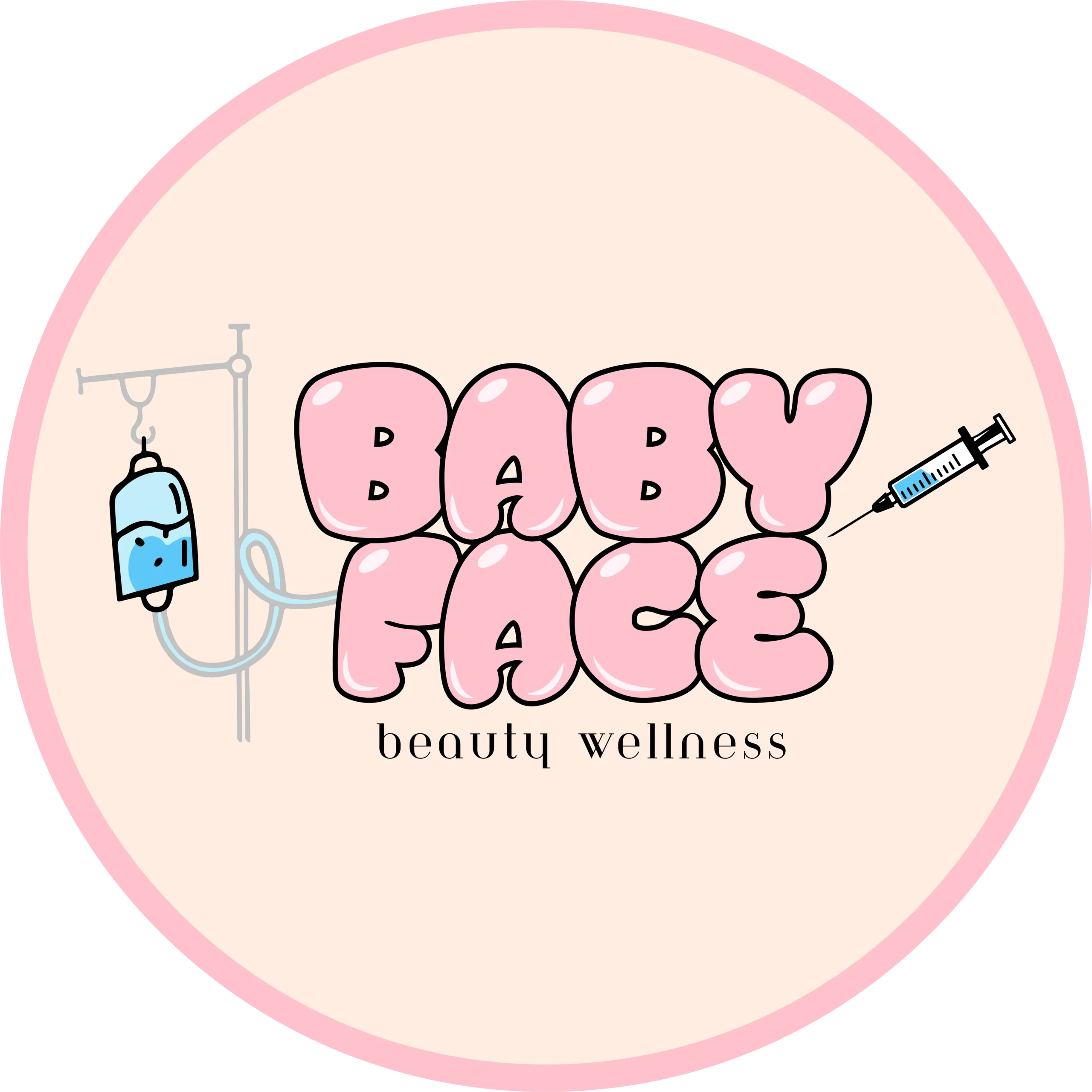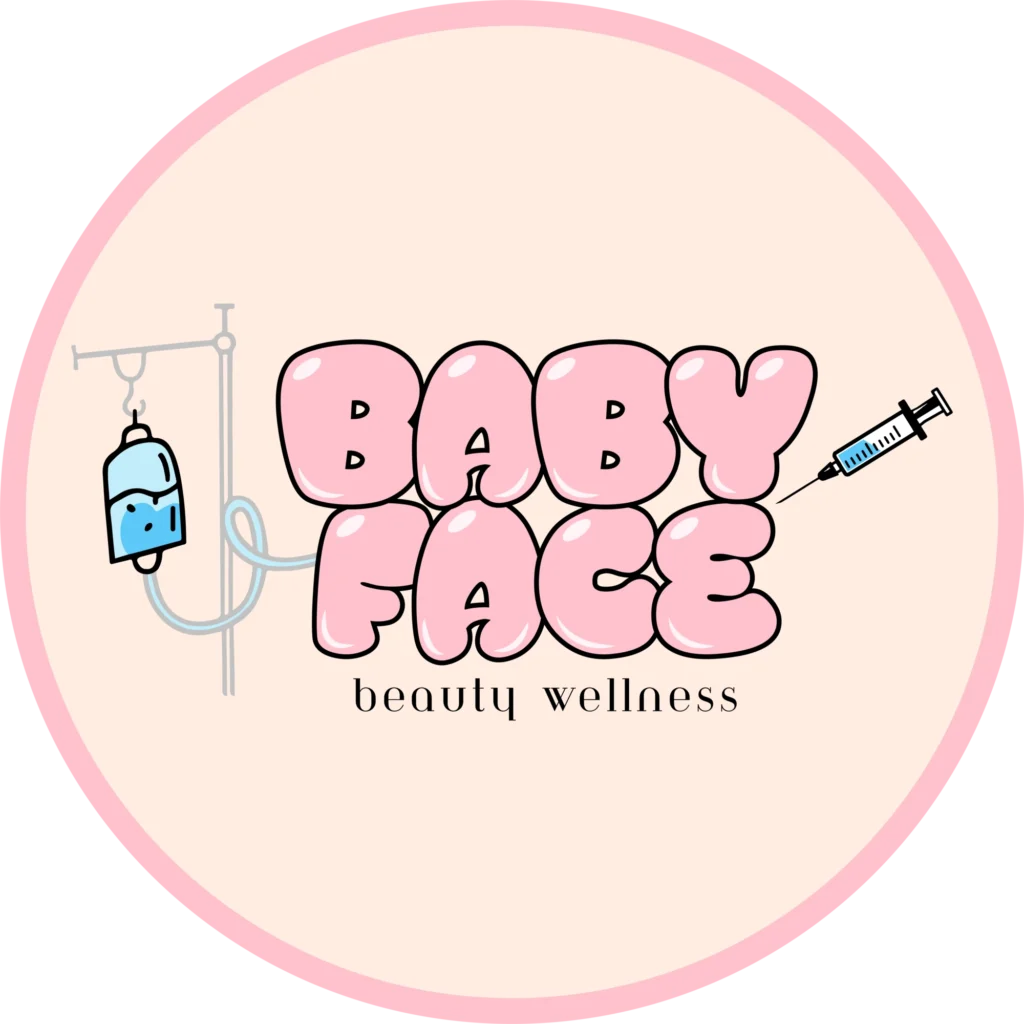Anti-Aging Treatments in Costa Mesa, CA

Anti-Aging Skincare in Orange County, CA
Everything anti-aging from the inside and out. Aids with skin rejuvenation and gives a powerful glow + DNA / cell regeneration. Let’s get to know Types & benefits of Anti-Aging Treatments in Costa Mesa, CA.
Rejuvenate Your Skin & Restore Your Vitality
Discover a comprehensive approach to anti-aging. Our treatments combine the power of IV therapy and advanced skincare to fight free radical damage, boost collagen production, and reveal a radiant, youthful you.
Rejuvenate skin with our Anti-Aging Glow IV, packed with antioxidants. Enhance results with NAD+ for cellular repair or PRP for collagen stimulation.
Call us at (949)228-9308 or Request an appointment.
Conveniently located in Costa Mesa, California, our medical spa serves clients from:
- Newport Beach
- Orange
- Irvine
- Tustin
- Santa Ana
- Coto de Caza
- Huntington Beach
- Laguna Beach
- Laguna Hills
- Seal Beach
- Los Alamitos
- Fountain Valley
- Dana Point
- San Clemente
- Anaheim
Differences Between Oral and IV Vitamin Administration
When vitamins are taken orally, it undergoes partial absorption as it passes through the digestive tract. Various factors like stress, smoking, alcohol, medications, gut issues, inflammation, and infections can hinder its absorption. Additionally, oral intake may lead to gastrointestinal side effects like cramping and diarrhea. On the other hand, through IV therapy, vitamin C is fully absorbed into the bloodstream, allowing for doses 30-70 times higher than oral intake. This can result in a more potent therapeutic response for disease prevention and treatment.
Furthermore, the body processes vitamins differently when administered orally versus through IV. Oral doses primarily function as antioxidants, safeguarding cells from damage caused by reactive oxygenated compounds. IV vitamins not only offers heightened antioxidant protection but can also generate hydrogen peroxide at elevated doses, which can combat infections and cancer cells.
It’s worth noting that over-the-counter oral vitamins lack FDA regulation, potentially raising concerns about quality. In contrast, IV vitamins are sourced directly from pharmacies adhering to strict regulations for accurate potency and quality, requiring a prescription from a physician
This encompasses: Glutathione I Vitamin C I B Complex
Information About Glutathione IV
Glutathione, while not as widely recognized as vitamin C, boasts potent antioxidant properties that can significantly contribute to your overall well-being. This is precisely why we provide glutathione IVs as an integral aspect of our mobile IV services.
In certain IV packages, we feature this “master antioxidant” as a central component. Alternatively, you have the option to customize your drip bag by including glutathione. Whichever way you choose to integrate glutathione into your IV treatments, you can anticipate remarkable benefits. Delve deeper into understanding how this powerhouse antioxidant can bolster your health and enhance your well-being through glutathione IV therapy.
What are the benefits of a Glutathione IV?
Glutathione, a potent antioxidant comprised of three amino acids—cysteine, glutamate, and glycine—exerts remarkable effects on the body. It is highly effective in combating free radicals, which tend to increase with age. Therefore, supplementing it through methods like IV treatment can be beneficial. Additionally, it serves as a skin brightening IV for individuals seeking a more radiant complexion.
Anti-Aging Skincare in Costa Mesa, CA presents several IV packages inclusive of glutathione. This infusion aids in reducing cellular damage caused by free radicals, promoting hydration, and alleviating discomforts like headaches, joint pain, and anxiety. Given that low glutathione levels are linked to various health issues, maintaining glutathione IV therapy contributes positively to overall well-being.
Glutathione is a tripeptide compound formed by the combination of three powerful amino acids: glutamate, glycine, and cysteine.
This natural production of glutathione in your body serves as a vital defense against free radicals, ensuring optimal cellular health. Our exposure to free radicals, stemming from sources like environmental pollutants, stress, excessive alcohol consumption, among others, can lead to potential cellular and DNA damage. This can manifest in various issues, including:
- Heightened signs of aging, such as dry or wrinkled skin
- Occurrence of headaches
- Reduced energy levels
- Elevated susceptibility to illnesses
- Diminished mental clarity
- Joint discomfort
- Overall fatigue
Other Benefits of Glutathione IV:
Indications of Aging
Brittle, fragile nails. Lackluster, dull hair. Sagging, wrinkled skin. These are visible indicators of the damage caused by free radicals. Infusing glutathione via IV allows this potent antioxidant to go to work, combatting oxidative stress within the body. Glutathione aids in enhancing skin suppleness, reducing the visibility of hyperpigmentation (dark or discolored spots), and minimizing fine lines, resulting in a more vibrant complexion.
Moreover, glutathione doesn’t merely decelerate the outward signs of aging. Free radicals also contribute to cognitive decline associated with aging, as well as neurological conditions like Alzheimer’s, which tend to emerge in later stages of life. Elevating your glutathione levels may promote sharper cognitive function.
Detoxification of the Liver
Given that the liver is the primary site for producing glutathione in the body, it’s no surprise that glutathione plays a crucial role in supporting liver health. As an antioxidant, glutathione excels at purging toxins from the body’s cells, a function especially vital for the liver. This vital organ ensures the smooth operation of your body by metabolizing the food you consume, converting it into energy, and filtering out waste.
Impaired liver function can hinder these processes, compromising your overall well-being. In clinical settings, glutathione IVs have been administered to patients dealing with chronic liver conditions, including nonalcoholic fatty liver disease and liver toxicity.
Enhancing Physical Performance
Enhancing your athletic prowess is crucial whether you’re aiming to shave off minutes from your personal best marathon time or aiming for more reps in a demanding CrossFit session. Many athletes opt for glutathione injections or IVs to aid in achieving these objectives.
Glutathione can assist in reducing muscle fatigue following an intense workout, enabling you to maintain your training routine and cultivate greater strength and stamina. (Additionally, this may help lower the risk of injury, as you won’t be straining fatigued muscles excessively.)
Management of Inflammation
Here is another area where the potent antioxidant capabilities of glutathione can significantly impact your well-being. Oxidative stress incites inflammation within the body, heightening the risk of DNA damage and the onset of the aforementioned chronic conditions.
Additionally, glutathione serves as an anti-inflammatory agent, potentially alleviating symptoms linked to autoimmune diseases where inflammation plays a pivotal role. (Recent research has also suggested that glutathione may be beneficial in addressing inflammation associated with COVID-19.)
Persistent Health Issues
The manifestations of a long-standing medical condition can be distressing and challenging to handle, significantly impacting your day-to-day life. Many enduring illnesses — including cancer, fibromyalgia, heart disease, autoimmune conditions, chronic fatigue syndrome, and gastrointestinal disorders, among others — have been associated with diminished glutathione levels. Administering a glutathione IV can help restore these diminished levels and provide relief from symptoms.
Glutathione IV FAQS
How quickly does a glutathione IV take effect?
A glutathione IV initiates its effects immediately. The saline solution, enriched with glutathione, swiftly permeates your system, rehydrating your cells and alleviating any symptoms arising from dehydration. Through IV treatment, your body can absorb over 90% of the glutathione, boasting higher bioavailability compared to oral supplements.
Glutathione also exerts long-term benefits, aiding in detoxifying chemicals and combating free radicals that can harm cells. While the effectiveness of glutathione typically becomes noticeable within approximately three weeks, individual results may vary depending on the frequency of treatments and the pace of your metabolism.
How frequently should you undergo IV Glutathione?
The recommended frequency for glutathione IV sessions is 1-3 times per week, spanning approximately 4 to 9 weeks.
What is the duration of effectiveness for a Glutathione IV?
The benefits of a glutathione IV can extend for several months, contributing to long-term health improvements and potentially lowering the risk of conditions such as autoimmune diseases.
What is the duration of effectiveness for a Glutathione IV?
What are the potential side effects of IV Glutathione?
In general, a dose of glutathione IV is considered safe for adults and typically doesn’t lead to any serious side effects. Minor discomforts like cramping and bloating have been reported, along with a potential decrease in zinc levels for prolonged users of glutathione.
In rare instances, some individuals have experienced adverse reactions to glutathione including asthma attacks, skin issues, and kidney or liver toxicity, as well as headaches. If you have concerns about these effects, it’s advisable to consult your doctor regarding your use of glutathione.
Information About Vitamin C IV
Vitamin C, scientifically known as ascorbic acid, plays a crucial role in the formation of collagen, cartilage, muscle, and blood vessels. Additionally, it is vital for the optimal functioning of our immune system and aids in the process of healing. Acting as a potent antioxidant, Vitamin C shields your cells from the detrimental impacts of free radicals. These harmful byproducts stem from environmental toxins, smoking, and a subpar diet, potentially leading to conditions like cancer, heart disease, and various other ailments. By preventing free radical-induced damage, Vitamin C acts as a safeguard against disease. Furthermore, it facilitates the absorption and storage of iron in the body. Given that our bodies do not produce Vitamin C internally, it is imperative to incorporate Vitamin C-rich foods into our diet, including citrus fruits, berries, potatoes, tomatoes, peppers, cabbage, Brussels sprouts, broccoli, and spinach.
Vitamin C IV FAQS
How long does IV therapy take, and what's the duration of its effects?
The administration of an IV typically spans 15-90 minutes. Some individuals may begin to experience its effects anywhere from four days to two weeks post-treatment.
Following absorption, an IV drip infusion typically provides benefits for a few hours. Factors such as your level of hydration and recent urination may influence the rate at which fluids pass through your system.
Under normal circumstances, it takes a couple of hours for IV fluids to be fully eliminated from your body
How frequently should I undergo Vitamin C IV sessions?
As part of a general wellness regimen, 1 to 2 sessions per month is a common practice. In cases of mild viral infections, 1 or 2 sessions can be employed as needed. For more substantial infections like COVID-19, ongoing clinical trials are exploring daily infusions over a span of 1 week. In the context of cancer therapy, 1-3 sessions per week with higher doses of vitamin C are often recommended.
Does IV Vitamin C therapy help improve the skin?
Indeed, IV Vitamin C has been utilized for its skin-lightening effects. It is frequently combined with glutathione, another potent antioxidant, to achieve the desired enhancement in skin appearance, making it an effective anti-aging combination.
What is the duration of effectiveness for a Vitamin C IV?
While the procedure itself typically lasts between 30 to 60 minutes, patients often experience the benefits for about three to four days post-treatment. As your vitamin levels stabilize, the positive effects tend to extend, allowing for visits spaced out to once every two weeks.
It’s important to note that various factors come into play regarding the duration of IV infusion therapy benefits, and it varies from person to person. These factors encompass age, metabolism, biology, dietary habits, lifestyle, and overall health.
Your physician will closely monitor your progress and tailor the administration of nutrients—ensuring the right types, doses, and timing. This personalized approach ensures you receive just the right amount of vitamins and minerals, avoiding any unnecessary excess.
Information About Vitamin B IV Complex
“Vitamin B complex plays a crucial role in various bodily functions. Its deficiency can lead to a range of disorders, including chronic neurological conditions. Biochemically, B complex encompasses different structures found naturally in similar types of food and soluble in water. Since humans cannot produce these B complex vitamins internally and they are easily excreted through urine, regular intake is vital for sustaining energy production, DNA/RNA synthesis and repair, as well as the methylation of genomic and non-genomic components. Additionally, they contribute to the synthesis of numerous neurochemicals and signaling molecules. Deficiency in B complex can typically be attributed to four main factors: excessive consumption of processed and refined foods, insufficient intake of dairy and meat-based products, overconsumption of alcohol, or issues with absorption in the gastrointestinal tract, and impaired storage and utilization by the liver.
Clinical research indicates that in emergency situations, parenteral administration (intramuscular or intravenous) is preferred over other routes of drug administration. This method allows for bypassing first-pass metabolism, ensuring reliable therapeutic concentrations, and providing better dosage bioavailability. It may also be employed when the oral route is not feasible.”
What are the benefits of Vitamin B Complex IV?
When administered intravenously (IV), B complex vitamins offer a swift and effective means of replenishing the body’s essential nutrients. This group of vitamins, including B1, B2, B3, B5, B6, and B12, play vital roles in various biological processes such as energy metabolism, cognitive function, and the health of skin, hair, and eyes. By delivering B complex vitamins intravenously, the body can absorb and utilize these nutrients more efficiently, leading to increased energy, reduced stress, and other potential health benefits.
What is the duration of effectiveness for a B Complex IV?
B complex encompasses a group of vitamins, including thiamine (B1), riboflavin (B2), niacin (B3), pantothenic acid (B5), pyridoxine (B6), biotin (B7), folic acid (B9), and cyanocobalamin (B12). Since each of these vitamins has a distinct half-life and excretion rate, the duration of time B complex remains in the system can differ.
Typically, water-soluble vitamins like B complex aren’t stored in the body for extended periods and are excreted relatively swiftly. Excess B complex vitamins are eliminated through urine, so the duration of their effects hinges on their absorption and excretion rates.
For instance, vitamin B12 has a half-life of 6-7 days, signifying that it takes roughly one week for half of the vitamin to be expelled from the body. Conversely, vitamin B2 boasts a shorter half-life of 2-4 hours. Consequently, the presence of B complex in the system can span from a few hours to several days, contingent on the specific vitamin and an individual’s metabolism.
Here's a summary of the various B complex vitamins and their contributions to the body:
Vitamin B1 (Thiamine):
Thiamine is crucial for preventing complications in the nervous system, cardiovascular system, and gastrointestinal tract. It also facilitates electrolyte flow between extracellular fluid and muscle or nerve cells. A deficiency in Vitamin B1 leads to beriberi, affecting the heart, nerves, and digestive system.
Vitamin B2 (Riboflavin):
Riboflavin is essential for maintaining the body’s energy supply. It converts carbohydrates into Adenosine Triphosphate (ATP), the form in which the body stores energy. Additionally, Vitamin B2 supports healthy skin, eyes, and muscles, aids in hormone production by the adrenal gland, prevents cataract formation, maintains liver health, converts tryptophan into niacin, and contributes to fetal development.
Vitamin B3 (Niacin):
Niacin reduces LDL cholesterol levels by 5-20% and is used in managing individuals with high levels of bad cholesterol who cannot tolerate statins. It also increases HDL cholesterol levels by 15-35%. Niacin diminishes oxidative stress and inflammation, contributing to the prevention of atherosclerosis. Studies suggest it reduces the risk of Type-1 diabetes in at-risk children and protects skin cells from sun damage. It is also used in pellagra management.
Vitamin B5 (Pantothenic Acid):
Pantothenic acid supports healthy skin, hair, and eyes, aids in hormone synthesis in the adrenal gland, produces red blood cells, and maintains a healthy gastrointestinal tract.
Vitamin B6 (Pyridoxine):
Essential for mood regulation, Pyridoxine is involved in neurotransmitter production, including dopamine and serotonin. It may help in cancer prevention, heart disease risk reduction, and Alzheimer’s prevention. It’s also used to manage symptoms of premenstrual syndrome and pregnancy-related nausea and vomiting.
Vitamin B12 (Cobalamin):
Recommended for megaloblastic anemia, Vitamin B12 also prevents age-related macular degeneration. It metabolizes and synthesizes serotonin, impacting mood regulation. Deficiency is associated with memory loss, highlighting its importance for cognitive function. Aids in DNA and red blood cell production. Vitamin B 12 also facilitates energy production through food metabolism, supports healthy brain function, boosts the immune system, helps alleviate feelings of depression or anxiety, maintains the integrity of the central nervous system, promotes stable mood, and boosts the immune system. In addition, B 12 reduces levels of homocysteine in the blood; elevated levels of this compound have been associated with a greater risk of dementia, heart attack, and stroke
What comprises B complex?
Vitamin B1 (Thiamine):
Thiamine, also known as Vitamin B1, is crucial for energy metabolism, bolstering immunity, and ensuring the proper functioning of the nervous system. It aids in averting type 2 diabetes, various cardiovascular conditions, specific vision and kidney ailments, as well as neurodegenerative disorders like Alzheimer’s disease.
Vitamin B2 (Riboflavin):
Riboflavin, or Vitamin B2, acts as a potent antioxidant and plays a pivotal role in sustaining healthy blood cells while promoting metabolism.
Vitamin B3 (Niacin):
Niacin, a member of the B-vitamin family, plays a pivotal role in the optimal functioning of both the nervous and digestive systems. Like other B-vitamins, it is essential for energy production and the metabolism of fatty acids. Additionally, it contributes to healthy skin, nails, and hair.
Vitamin B5 (Pantothenic Acid):
Pantothenic acid is indispensable for the proper development of the central nervous system. It participates in energy production and is involved in various metabolic and anabolic pathways, contributing to the development of amino acids, blood cells, vitamin D3, and other fatty acids.
Vitamin B6 (Pyridoxine):
Vitamin B6, also known as Pyridoxine, plays a profoundly influential role in the synthesis of neurotransmitters and is indispensable for maintaining good mental health. It also exerts a direct impact on immune function. Furthermore, it is involved in the metabolism of amino acids and serves as a vital co-factor in the folate cycle; its deficiency can lead to anemia.
Epidemiological evidence, in certain cases, suggests that the recommended dosages of vitamin B may suffice to prevent marginal deficiency. However, additional benefits may be gained from higher dosages than those provided by the Recommended Dietary Allowances (RDA).
Vitamin B 12 (Cobalamin)
Vitamin B12 is crucial for the production of red blood cells and the maintenance of a healthy nervous system. Additionally, it plays a key role in releasing energy from the food we consume.
Vitamin B Complex IV FAQS
How quickly does a B Complex IV take effect?
The positive effects are typically experienced almost instantly. However, individual responses to the treatment can vary due to differences in body chemistry.
How frequently should you undergo IV B Complex?
It’s individualized! You’ll experience greater benefits with regular use—like twice a month or more—compared to sporadic intake. Since health is an ongoing journey, your body will signal what it requires and in what quantity. For instance, if you indulge in weekend drinks, a weekly infusion might be beneficial in preventing a vitamin B1 and B2 deficiency.
Information About Biotin IV
Administering Biotin(B7) through IV or IM injections proves advantageous for addressing issues like skin rashes, fragile nails, hair thinning, diabetes, and nerve pain, especially in instances of acute deficiency. While oral biotin supplements are widely utilized for stimulating hair growth and fortifying nails, injections are superior in situations where swift outcomes are sought. Injections enable the highest possible absorption of the vitamin directly into the body, circumventing the metabolic processes of the digestive system that may impact the bioavailability of oral supplements.
How quickly does a Biotin IV take effect?
The time it takes for biotin to yield noticeable results can vary widely from person to person. Some individuals may experience effects in as little as two weeks, while for others, it may take anywhere from one to three months to observe the impact of biotin on their body. Also, depending on several factors, including the underlying condition being treated and the individual’s response to the treatment. While some individuals may notice improvements relatively quickly, others may require more time to experience noticeable changes.
What are the benefits of IV Biotin ?
- This vitamin offers the following advantages:
- Promotes the maintenance of healthy skin
- Enhances the resilience of both toenails and fingernails
- Facilitates the metabolism of macronutrients such as carbohydrates, proteins, and fats
- Regulates blood sugar levels in individuals with Type-2 diabetes
- Assists in the management of Multiple Sclerosis
- Enhances hair strength
- Stimulates hair growth
- Guards against hair loss and dryness
- Boosts hair thickness
- Minimizes split ends
- Restores hair’s elasticity
- Enhances blood glucose levels
- Maintains stable blood sugar levels
- Regulates cholesterol levels
- Speeds up metabolism and digestion
- Facilitates weight loss
Vitamin C IV FAQS
How frequently should you undergo IV Biotin ?
The frequency of biotin injections is contingent on your particular condition and the guidance of your healthcare provider. Typically, the dosing regimen for biotin injections is determined by factors like the extent of biotin deficiency or the specific condition being addressed.
In certain cases, biotin injections may be given every few weeks, while others may require more frequent administrations. Your healthcare provider will evaluate your unique requirements and set the suitable dosage and injection timetable for you.
What is the duration of effectiveness for an IV Biotin?
Biotin is a water-soluble vitamin, meaning it is not stored in the body and is rapidly eliminated. Typically, the body clears it within less than 24 hours after consumption.
Babyface Anti-Aging Glow Pricing
Packages 1
$250 each treatment
Packages 2
$425 /2 sessions
PLEASE ASK US ABOUT THE BABYFACE MEMBERSHIP PROGRAM
Testimonials
The only medical spa in Orange County that Specializes in both health & Beauty – focusing on you being your best self on the outside as well as the inside
Quick Links
Opening Hours
Mon: Closed
Tue – Fri: 9:00 am – 6:30 pm
Sat: 9:00- 12:00 pm
Sun: CLOSED (By Appointment Only)
*Varies by month. Contact us via phone, text, or email for availability



